Are you passionate about nursing and looking to advance your career? If so, becoming a flight nurse might be your perfect path. Today, we will cover everything you need to know about flight nursing programs. This includes everything from the career overview to the required skills.
You will discover what flight nurses do and the responsibilities they have. You will also know the steps you need to take to become one. We will also dive into the certifications and programs available for flight nurses. We will also be exploring what the job is like. If you’re ready to soar in your nursing career, keep reading to find out how.
Flight Nurse Career Overview
Flight nursing involves specialized training beyond traditional nursing education. Extra preparation is needed to provide emergency medical services during air transport. The best flight nursing programs focus on hands-on experience and simulation training.
When selecting a program, accreditation, and certification are vital considerations. This is because they enhance job prospects and opportunities for career advancement in flight nursing.

Responsibilities of a Flight Nurse
Some specific responsibilities of a flight nurse may include:
- Assessing and managing the condition of patients during transport.
- Administer medications, fluids, and other treatments as necessary.
- Monitoring vital signs and responding to changes in patient status.
- Collaborating with team members including doctors, paramedics, and pilots, to ensure efficient care.
- Documenting patient information and maintaining accurate medical records.
- Providing emotional support and reassurance to patients and their families during transport.
- Adhering to safety protocols and procedures during air transport.
How to Become a Flight Nurse?
Becoming a flight nurse involves several steps:
1. Become a Registered Nurse
To pursue a career as a flight nurse, the first step involves becoming a registered nurse (RN). This requires earning a Bachelor of Science in Nursing (BSN) degree. Afterward, candidates must pass the National Council Licensure Examination for Registered Nurses (NCLEX-RN).
Once you have obtained your RN license, you must gain experience in critical care settings such as the ICU or ER. This is crucial for flight nursing positions. This experience will provide you with the necessary skills and knowledge to excel as a flight nurse. You will also be able to offer care for injured patients. Additionally, obtaining certifications such as ACLS and TNCC will enhance your qualifications. This will also make you a well-rounded candidate.
Completing flight nurse training programs offered by reputable organizations or programs is essential. This is because it provides specialized training specific to flight nursing.
2. Gain Experience in the ICU or ER
Gaining experience in the intensive care unit (ICU) or emergency room (ER) is pivotal for flight nurses. These settings provide crucial opportunities for developing critical thinking skills. It helps you master advanced medical procedures and become familiar with specialized equipment.
Many flight nursing programs need at least 3-5 years of clinical experience in the ICU or ER. It ensures that flight nurses have a strong foundation in providing critical care.
3. Get Certified
Employers often need flight nurses to get certification as Certified Flight Registered Nurses (CFRN). They also need a comparable certification tailored to flight nursing. This certification entails fulfilling eligibility requirements. It also involves passing an exam that evaluates your skill in patient assessment and critical care transport.
It is important to note that certification maintenance involves completing continuing education courses. You’ll also have to renew your certification regularly through the respective certifying organization.
Skills a Successful Flight Nurse has
A successful flight nurse, whether it be in the United States or internationally, possesses a unique set of skills. These skills are crucial in providing optimal patient care during air transportation:
1. Physical stamina
Flight nursing, a specialized field of nursing, demands a remarkable amount of physical stamina. The job duties of flight nurses involve working long hours and undertaking demanding tasks. They must carry heavy medical equipment during rescue missions. They also have to deliver life-saving care in critical patient transfers.

To ensure they are up to the task, flight nursing programs incorporate physical fitness assessments and training. By maintaining good physical fitness, flight nurses can fulfill their crucial role.
2. Extensive flight experience
Experienced flight nurses with a strong critical care background are essential for providing care in tough situations.
They have the skills to treat patients during emergencies, especially those who have worked in emergency rooms or intensive care units.
3. Ability to remain calm
Flight nursing requires the ability to remain calm in high-stress situations. This skill is crucial for flight nurses as they are often faced with critical and life-threatening emergencies. The field of nursing, especially flight nursing, demands the utmost coolness and composure.
In chaotic environments, flight nurses must think calmly and maintain a focused mindset. This skill is developed through experience, training, and practicing stress management techniques.
4. Communication
Communication skills play a key role in the success of flight nurses. As flight nurses, it is important to have effective communication skills to interact with patients
They must be skilled in conveying information during situations like emergency medical transfers. They should also be able to build rapport with patients through verbal and non-verbal communication.
Additionally, they should be proficient in written communication to document patient care. The documented information needs to be accurate. Through communication, nurses can also collaborate with healthcare providers. Active listening and the ability to coordinate care within the healthcare team are also essential for flight nurses.
5. Emotional stability
Flight nurses often have to handle difficult or emotional conversations. They do so by offering support and reassurance during challenging times. Moreover, emotional stability helps them cope with the physical demands of the job. It also helps them during long hours and sleep deprivation. Being away from home for extended periods also requires flight nurses to prioritize self-care. By maintaining emotional well-being, flight nurses can provide the best possible care to their patients.
6. Organization
This involves keeping track of multiple patients, medications, equipment, and paperwork. Whether they are working in a confined plane or a fast-paced environment, flight nurses must ensure that all necessary supplies are available and properly stocked.
Additionally, the organization extends to communication with other members of the medical team and coordination with ground staff. Being able to locate and access critical information, such as patient medical histories and treatment protocols, is essential for flight nurses to provide optimal care during transport.
7. Critical thinking skills
These skills, essential during emergencies, can have a significant impact on patient outcomes. Flight nurses must have the capability to make rapid, informed decisions with limited information. Moreover, they need to anticipate potential complications and plan accordingly. To strengthen their critical thinking skills, flight nurses must focus on ongoing training and education. By nurturing this vital skill set, flight nurses can ensure optimal care for their patients.
8. Empathy
The skill of empathy empowers flight nurses to provide comfort and reassurance to patients in distress. It also ensures effective communication with patients and their families. This holistic approach to care creates an atmosphere of compassion and understanding. It enables flight nurses to anticipate and fulfill the individualized needs of patients.
The cultivation of empathy is essential to create a supportive environment for patients during the challenging experience of medical transport.
Top 11 Flight Nursing Programs & Certifications
Flight nursing is a specialized field of nursing that requires advanced clinical skills and expertise. To excel in this field, flight nurses pursue additional certifications to enhance their knowledge. Here, we present the top 11 flight nurse certifications that can help you stand out in your nursing career.
1. Certified Flight Registered Nurse (CFRN)
This particular certification is considered the gold standard for flight nursing. Offered by the Board of Certification for Emergency Nursing (BCEN), this certification holds great value within the field. It is designed for registered nurses (with at least two years of experience in emergency or critical care nursing.
The CFRN exam evaluates the knowledge of the nurses. It also tests skills related to aeromedical transport, trauma care, and patient assessment.
Here is a recommendation for a study guide for the CFRN exam:
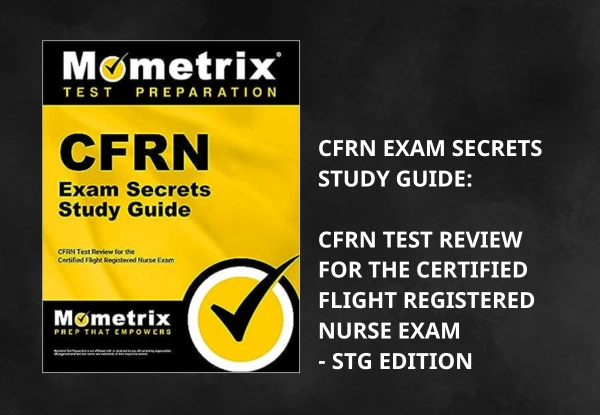
2. Certified Transport Registered Nurse (CTRN)
The Certified Transport Registered Nurse certification is for nurses in the transport field. It even includes flight nursing. The CTRN certification demonstrates a nurse’s advanced knowledge. It also shows the skills in providing high-quality care to patients during transport situations.
Nurses are eligible to pursue the certification with an unrestricted registered nurse license. They also need at least two years of experience in transport nursing. The CTRN exam covers various topics related to transport nursing. It includes patient assessment and preparation safety and survival, and professional issues.
Here is a recommendation for a study guide for the CTRN exam:
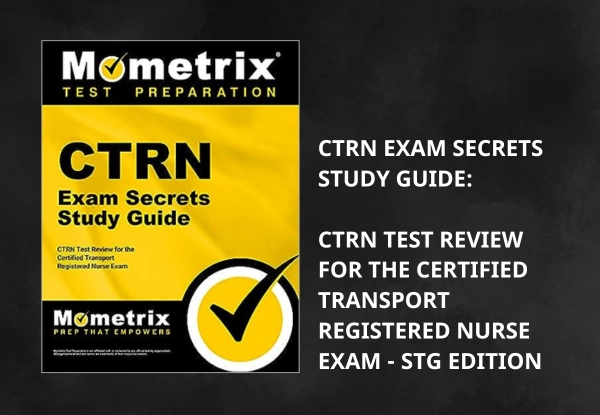
3. Certified Emergency Nurse (CEN)
This certification is regarded as one of the most recognized certifications for flight nurses. It highlights a nurse’s expertise in emergency nursing. It also focuses on their ability to deliver exceptional care during critical situations.
To be CEN certified, nurses are required to fulfill eligibility criteria and pass an exam. The exam delves into trauma management, cardiac emergencies, and respiratory emergencies. The certification remains valid for four years. As a result, it necessitates nurses to partake in continuing education to sustain their certification.
Here is a recommendation for a study guide for the CEN exam:

4. Advanced Cardiac Life Support (ACLS)
The certification known as Advanced Cardiac Life Support (ACLS) is of utmost importance for flight nurses. It is for nurses who may come across cardiac emergencies during transport situations.
The ACLS training program focuses on equipping flight nurses with advanced resuscitation techniques. It includes the proper management of airways and defibrillation. The administration of life-saving medications crucial during cardiac arrests is also included. Flight nurses with this certification have the skills to promptly respond to such emergencies. These skills come useful even in high-stress environments. As a prerequisite for admission or employment, many flight nursing programs either demand or recommend that nurses get ACLS certification.
Here is a recommendation for a study guide for the ACLS exam:
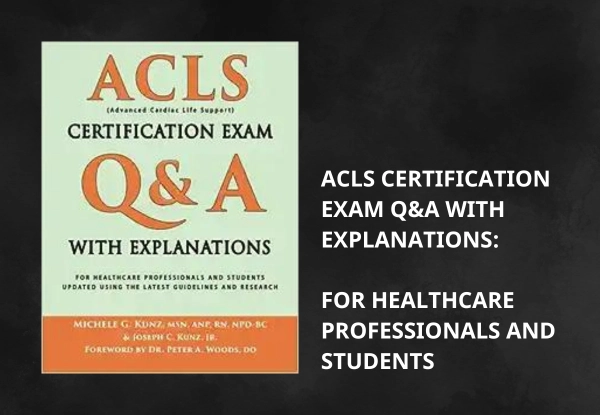
5. Pediatric Advanced Life Support (PALS)
PALS certification is designed to provide advanced life support. The life support in question is given to infants and children in emergencies. Flight nurses with PALS certification are equipped to deliver specialized care to ill or injured children. This special care is provided during aeromedical transport.
Topics such as pediatric assessment, airway management, resuscitation, and medication administration are covered. By obtaining PALS certification, flight nurses show their commitment to ensuring the well-being of pediatric patients in high-stress environments.
Here is a recommendation for a study guide for the PALS exam:
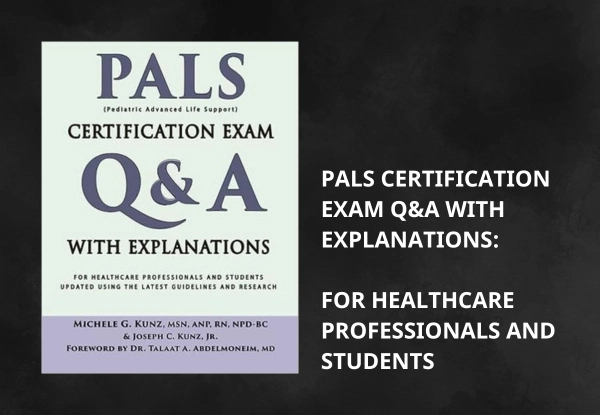
6. Neonatal Resuscitation Program (NRP)
The NRP program is for nurses who face neonatal emergencies during transport. It provides comprehensive training on managing and resuscitating newborns in various settings. Flight nurses even have to provide such care in air transport.
Flight nurses with NRP certification have the necessary knowledge and skills to provide specialized care for premature infants during flight transfers.
7. Trauma Nursing Core Course (TNCC)
The Trauma Nursing Core Course (TNCC) is for nurses working in trauma and critical care settings. This certification focuses on the assessment and management of trauma patients. It even includes airway management, hemorrhage control, and patient stabilization.
TNCC certification demonstrates a nurse’s competency in caring for ill or injured patients. As a result, this makes it essential for flight nursing program applicants.
Here is a recommendation for a study guide for the TNCC exam:
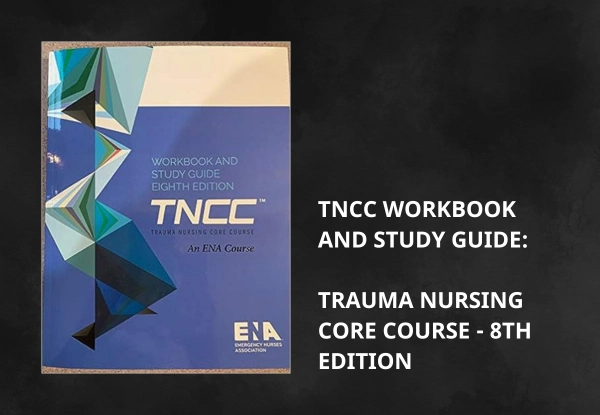
8. Critical Care Registered Nurse (CCRN)
The CCRN certification is one of the most recognized certifications for flight nurses. As a result, the program makes it an essential qualification for flight nursing professionals. By obtaining this, nurses showcase their skills in providing care for patients in intense situations. Eligibility requirements for the CCRN certification include holding a current RN license. They also need to have at least 1,750 hours of direct bedside care in a critical care setting. The CCRN exam covers topics such as cardiovascular and multisystem aspects of critical care nursing.
Here is a recommendation for a study guide for the CCRN exam:
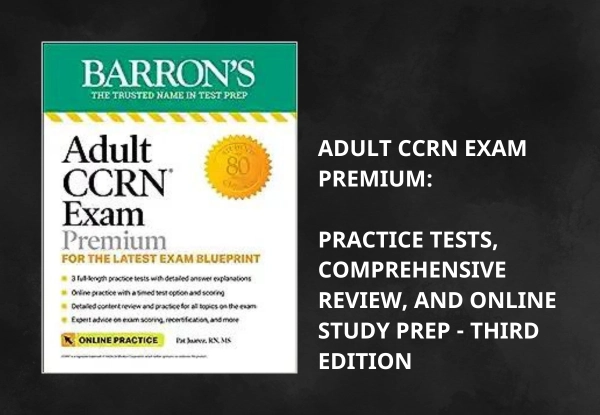
9. International Board of Specialty Nursing Certification in Flight Nursing
This certification, recognized internationally, showcases a high level of competency in flight nursing. To get this certification, nurses must fulfill specific eligibility requirements. They also have to complete a comprehensive exam.
The certification encompasses various areas, such as emergency medical care, patient assessment, etc.Holding this certification offers professional growth for flight nurses. It enables them to stand out in the competitive field and provide the best possible care for their patients.
10. Basic Life Support (BLS)
BLS certification ensures nurses have the necessary skills to respond to emergencies. It helps with training in CPR, the use of AEDs, and basic airway management. Flight nurses equipped with BLS certification can provide life-saving care.
BLS certification is a vital credential for flight nurses seeking to maintain their skills. The certification is renewable every two years. Besides, flight nurses may be required to hold more certifications such as ACLS and PALS. These will further enhance their ability to provide specialized care.
Here is a recommendation for a study guide for the BLS exam:
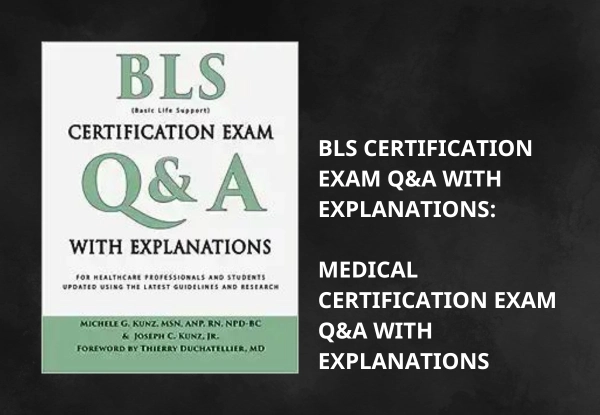
11. Pre-Hospital Trauma Life Support (PHTLS)
PHTLS focuses on providing advanced trauma care in pre-hospital settings. It is designed to equip nurses with the necessary expertise. PHTLS covers topics such as scene assessment, patient assessment, airway management, etc. By obtaining PHTLS certification, flight nurses show their commitment to delivering exceptional care to injured patients in their most vulnerable moments.
Conclusion
In conclusion, becoming a flight nurse requires dedication, specialized training, and a unique set of skills. It is a rewarding career that allows you to make a difference in the lives of patients during critical moments.
The demand for flight nurses is expected to grow in the coming years, and with it comes competitive salaries. If you have the passion and drive to excel in this field, explore our guide on the best flight nursing programs available to kickstart your career.
FAQs
What Does a Flight Nurse Do?
A flight nurse is a healthcare professional who delivers medical care to patients while they are being transported by air. They work on helicopters or fixed-wing planes and are trained in critical care.
Is Flight Nursing Hard?
Flight nursing can be very demanding. This is because of the high level of responsibility and unique working conditions. Flight nurses need advanced clinical skills to make critical decisions. The physical demands, long hours, and high-stress situations can make it challenging.
How Much Does a Flight Nurse Make?
The salary of a flight nurse can vary based on experience, location, and employer. On average, flight nurses in the US earn around $70,000 to $90,000 per year. Factors like overtime, bonuses, and shift differentials can also affect their income.
What Is Flight Nursing Like?
Flight nursing is a challenging and specialized area of nursing. It involves providing critical care to patients during air transportation. It requires adaptability and the ability to handle high-stress situations in fast-paced environments. Flight nursing often deals with life-threatening emergencies.

Leave a Reply